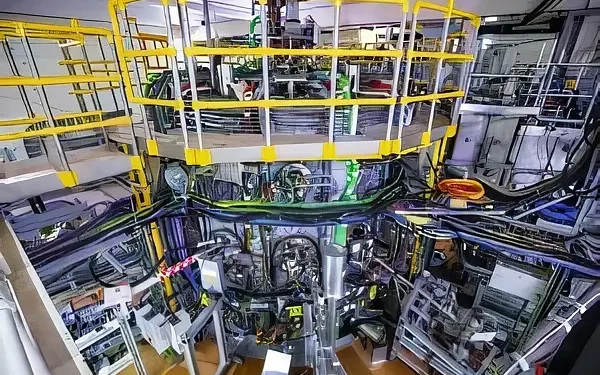The World Bank Group and the International Atomic Energy Agency (IAEA) have entered a partnership to promote nuclear energy in developing countries, marking the World Bank’s first involvement in nuclear power financing in decades.
This collaboration aims to enhance nuclear safety, extend reactor lifespans, and advance small modular reactors (SMRs) as cost-effective options for developing economies.
Global Development Financial Boost
The partnership between the World Bank Group and IAEA represents a significant shift in global development finance and energy policy.
By focusing on nuclear energy, this initiative aligns with the World Bank’s broader electrification strategy aimed at improving accessibility, affordability, reliability, and emissions management.
The expected doubling of electricity demand in developing countries by 2035 underscores the importance of this collaboration.
World Bank Comments
World Bank Group President Ajay Banga has been a vocal advocate for incorporating nuclear energy into a diversified energy mix to support development.
He emphasizes that reliable electricity is essential for economic growth and modern infrastructure.
The partnership with IAEA will focus on building knowledge around nuclear safety and technology while supporting countries that choose to pursue nuclear power programs.
International Cooperation
The United States plays a pivotal role as the largest shareholder in the World Bank, supporting the lifting of the ban on nuclear funding.
This move reflects U.S. strategic interests in promoting global energy security through expanded access to nuclear technologies.
The U.S. Treasury Secretary has publicly endorsed this policy change, highlighting its potential benefits for both trade and national security.
Strategic Developments
- The partnership marks a return to realism about nuclear power’s role in sustainable development.
- It opens opportunities for other multilateral banks and private investors to consider nuclear financing.
- Nuclear energy is recognized as vital for low-carbon baseload power and grid stability.
- This initiative could strengthen diplomatic ties between developed nations and developing economies through energy cooperation.
Economic Implications
The collaboration between the World Bank Group and IAEA could significantly impact trade by boosting demand for U.S.-developed SMRs in developing countries.
This aligns with U.S. goals of addressing climate change while ensuring reliable power sources for economic growth. Additionally, strengthening frameworks around nuclear safety supports non-proliferation efforts crucial to national security interests.
“Jobs need electricity. So do factories, hospitals, schools, and water systems,”
said Ajay Banga, President of the World Bank Group.
“Our partnership with the IAEA marks an important step,”
added Banga.
Additional Reading
To Sum Up
This landmark agreement between the World Bank Group and IAEA signals a new era of international cooperation focused on sustainable prosperity through advanced nuclear technologies.
As global electricity demands rise, such partnerships are crucial for ensuring that developing nations can access reliable power while meeting climate commitments effectively.
Sources: U.S. Department of State, World Bank Group, and International Atomic Energy Agency.
Prepared by Ivan Alexander Golden, Founder of THX News™, an independent news organization delivering timely insights from global official sources. Combines AI-analyzed research with human-edited accuracy and context.



